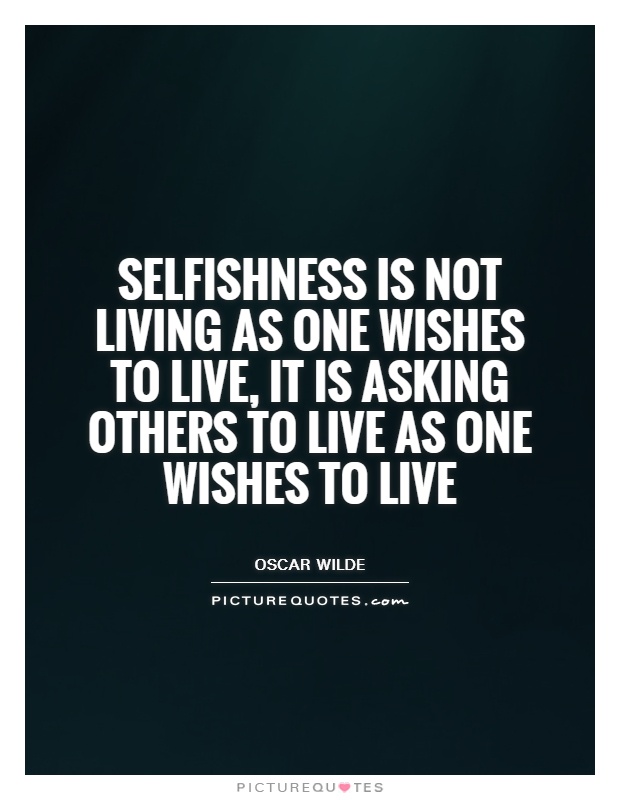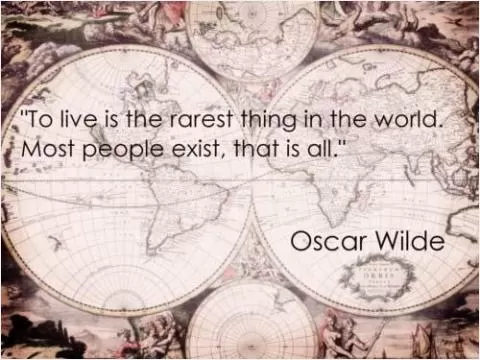Selfishness is not living as one wishes to live, it is asking others to live as one wishes to live

Selfishness is not living as one wishes to live, it is asking others to live as one wishes to live
Oscar Wilde, the renowned Irish playwright, poet, and author, was known for his wit, humor, and keen observations on society. One of his most famous quotes, "Selfishness is not living as one wishes to live, it is asking others to live as one wishes to live," encapsulates his views on individualism, freedom, and the dangers of imposing one's desires on others.Wilde believed that true selfishness was not simply pursuing one's own desires and interests, but rather expecting others to conform to those desires. In his works, Wilde often explored the consequences of societal expectations and the pressure to conform to conventional norms. He believed that true freedom and happiness could only be achieved by living authentically and embracing one's own unique desires and passions.
In Wilde's most famous play, "The Importance of Being Earnest," the characters struggle with the societal expectations of Victorian England while trying to maintain their own sense of individuality. The protagonist, Jack Worthing, creates a fictional alter ego in order to escape the constraints of his social class and pursue his own desires. However, he soon realizes that living a lie and imposing his desires on others only leads to chaos and unhappiness.
Wilde's quote also speaks to the dangers of selfishness in relationships and interactions with others. By expecting others to conform to our own desires and expectations, we not only limit their freedom and autonomy but also undermine the authenticity of our own desires. True selfishness, according to Wilde, is not about controlling others or seeking validation from external sources, but rather about embracing our own desires and living authentically.












 Friendship Quotes
Friendship Quotes Love Quotes
Love Quotes Life Quotes
Life Quotes Funny Quotes
Funny Quotes Motivational Quotes
Motivational Quotes Inspirational Quotes
Inspirational Quotes